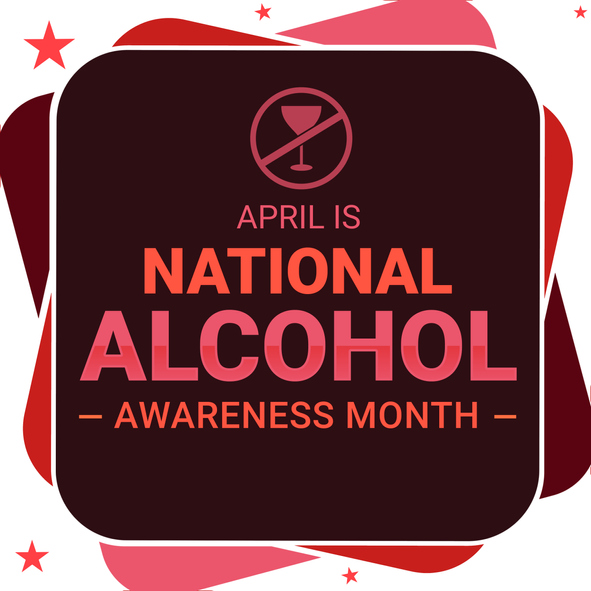“Wine-ing Down” Might Not Be As Harmless As You Think.

By Joy Stephenson-Laws, JD, Founder
Happy hour. A nightcap. A celebratory toast. Something to take the edge off. Drinking alcohol is such a norm in our culture that so many people forget that alcohol is actually a drug. A legal drug, but being legal does not make it harmless.
April is Alcohol Awareness Month, and I think it’s important to recognize that you can still have your life pretty pulled together but still have a drinking problem. Coping with stress by drinking alcohol can be very harmful with health consequences you might not see coming. Take, for example, the story of a woman named Pamela Wampler who developed a regular wine-drinking habit at 40-years-old.
“Drinking wine seemed like it was acceptable,” Wampler said, in this report from NBC TODAY
“The one thing that helped me numb the day was drinking wine — it was a normal thing for me to go home and drink.”
Wampler said her drinking really amped up due to job stress and the stress of her husband having health issues.
“Drinking quickly became a daily habit, and soon enough Wampler was finishing a bottle — sometimes two — every night. She started gaining weight and she stopped eating at night — choosing to drink instead,” according to the report from TODAY.
She could no longer ignore the consequences of her drinking when she went to the doctor and faced the harsh reality that she had gained 70 pounds and her blood pressure was high.
Also called hypertension, high blood pressure can damage the heart and increase the risk of heart attack or stroke.
“Drinking too much alcohol can raise blood pressure to unhealthy levels. Having more than three drinks in one sitting temporarily raises blood pressure. Repeated binge drinking can lead to long-term increases in blood pressure,” according to the Mayo Clinic.
For many Americans, drinking really ramped up during the height of the COVID-19 pandemic. According to one survey, the national average for the number of alcoholic beverages consumed per week in 2020 was 17! Because alcohol is an addictive drug, many people’s binge drinking habits are still very much active despite COVID-19 being more controlled and better managed.
In 2020 the American Cancer Society updated their guidelines for diet and physical activity, claiming that it is best to drink no alcohol at all in order to prevent cancer in general. If you are going to drink alcohol, they suggest no more than one drink per day for women and no more than two per day for men. So it may be time to reevaluate your relationship with alcohol if you feel the need to drink daily.

Despite that sobering (pun intended) moment at the doctor’s office, Wampler still continued to struggle with her drinking for a bit. Then, she got blood work that really revealed how alcohol was affecting her health. Her liver enzymes were “off the charts,” and she had an “extremely” fatty liver. Having a fatty liver significantly increases the risk of diabetes, heart disease, stroke and more. It can also lead to serious liver damage if not managed.
“My doctor said I was in the beginning stages of liver failure and within two years my liver would probably stop functioning," said Wampler.
It took time and a lot of effort, but she eventually got sober and used, I think, once of the best tools out there to support her sobriety: walking. She literally replaced her wine drinking with walking.
“I was at rock bottom. I was overweight, had no energy and couldn’t have stepped into a gym. I didn’t feel good about myself, but I could walk around my block,” she said.
This is what being proactive is all about. She had to start small, but this created major results. She lost 53 pounds, her liver enzymes are normal and her blood pressure dropped.
I also want to point out that drinking alcohol is not only dehydrating but also depletes the body of essential vitamins and minerals we all need to function, feel and look our best. A quick short term solution to replace the lost nutrients from alcohol consumption is the Myers Cocktail. It provides the hydration and vitamins directly into the bloodstream to help boost nutritional status.
Finally, it is crucial to take routine nutrient tests. If the test reveals you are not nutritionally balanced, a competent healthcare professional can work with you on making the necessary dietary changes and recommend quality supplements if necessary.
If you or someone needs help with alcohol or substance abuse, visit SAMHSA.
Enjoy your healthy life!
Disclaimer: This article is not intended to provide medical advice. Please consult with your doctor or another competent healthcare practitioner to get specific medical advice for your situation.
The pH professional health care team includes recognized experts from a variety of health care and related disciplines, including physicians, attorneys, nutritionists, nurses, and certified fitness instructors. This team also includes the members of the pH Medical Advisory Board, which constantly monitors all pH programs, products, and services. To learn more about the pH Medical Advisory Board, click here.







